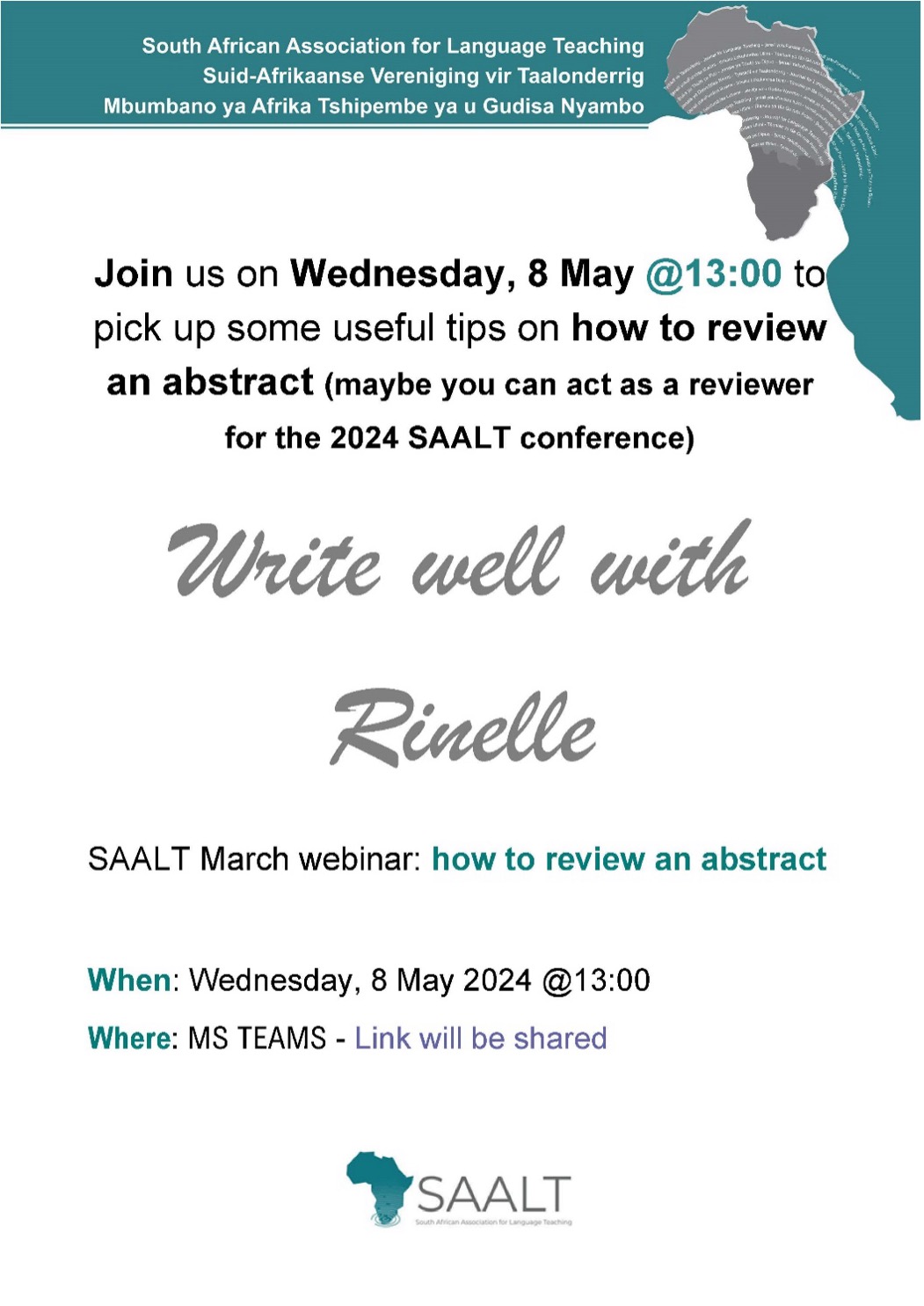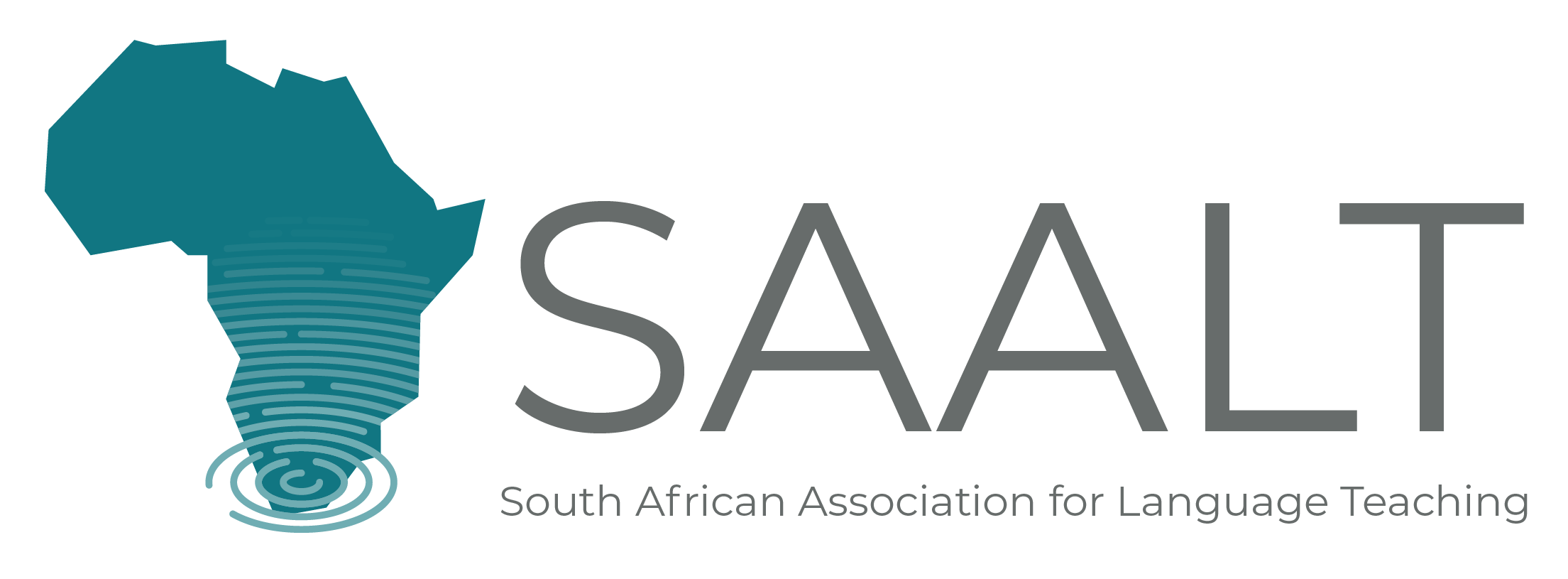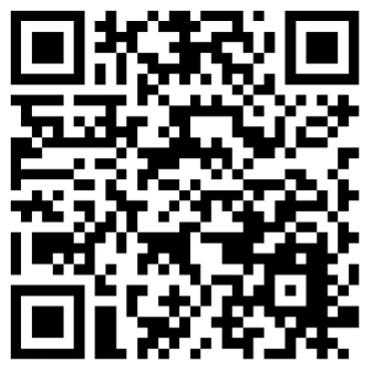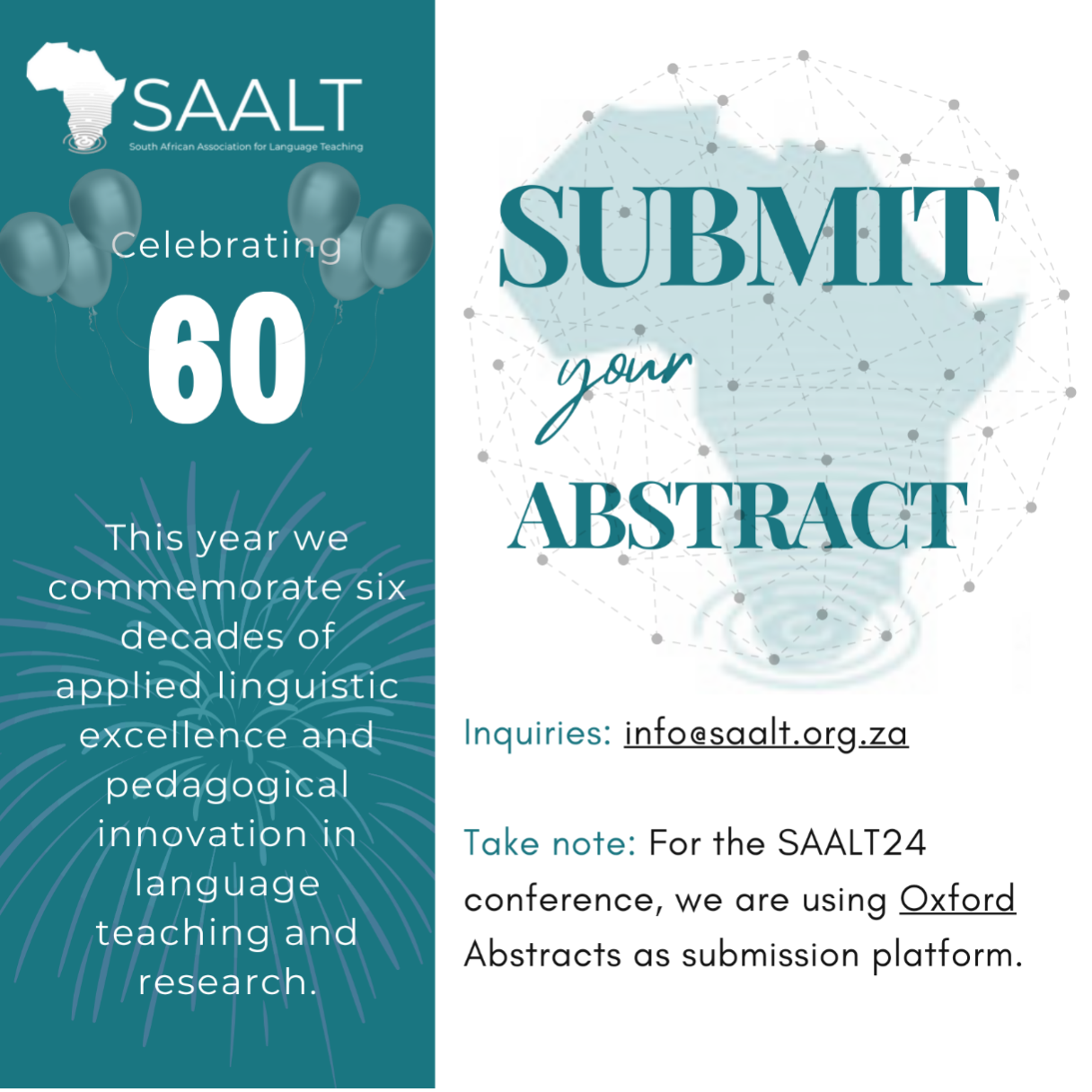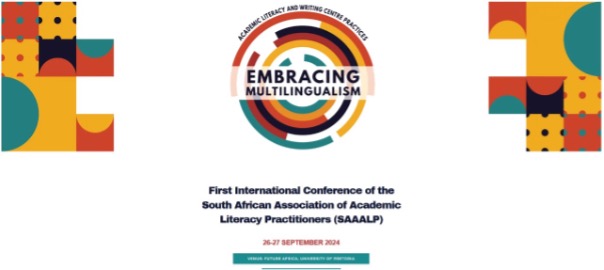SAALT Newsletter: March Edition
Let us March on diligently and focus on the art of academic writing
Dear SAALT members and Linguistic community,
As we approach the end of the first quarter of 2024 (unbelievable right?) we hope that you have found your stride for this year. Amidst the chaos of settling into your teaching and learning routine, juggling various responsibilities, and trying to manage personal responsibilities, we also hope that you have managed to make some time for your own writing. It is also that time of year where we are writing and submitting abstracts, articles, presentations, and therefore the focus this month is academic writing.

Academic writing has the power to transform and shape our understanding of the world and our place within it.
In an academic context, writing forms the cornerstone of our daily routines. We write while communicating with students or colleagues. We write while adhering to our teaching and learning responsibilities, and we write while trying to commit research. Writing is that ever-present thing, that ever-alluring skill that we all want to (try and) perfect. Academic writing can be seen as the embodiment of intellectual inquiry, critical discourse, and, of course, the sharing of knowledge. Academic writing is not merely a tool for communication, but the foundation of scholarly inquiry, a dynamic process that fosters critical thinking and also nurtures scholarly dialogue. Academic writing has the power to transform and shape our understanding of the world and our place within it.
In this newsletter, Dr. Joubert shares her thoughts on academic writing. We also share some important information about upcoming events. So grab something to drink (or eat), sit back, and just for a moment join our community of practise virtually by indulging in the thoughts of our experts.
Slowing down academic writing
Dr. Michelle Joubert
I am not a technophobe – except if by ‘techno’ you mean the minimalist electronica that had its heyday in the 1980s. I recognise the multiple ways in which artificial intelligence (AI) and other learning technologies can be valuable tools for learning and teaching. I see how they can complement academic writing instruction. But the problem arises when these technologies are adopted uncritically, when they’re seen as a panacea for our increasingly resource-constrained environments.
Ed-tech and AI are seductive for various reasons. They feed into our culture of efficacy and instant gratification. They feed the demand for quick fixes and steady throughputs. They feed a need for speed. But the trouble with speed is that it can short-circuit crucial learning processes. And in the field of academic literacy and writing development, the premium should be on process; on the slow, intentional graft and not simply on a slick product.
In a recent piece on the pitfalls of AI, the literary critic Steven Connor emphasises the value of inhabiting, rather than inhibiting – the difficulty of writing:
Nobody doubts the utility of writing machines. But what they do will be useful only to persons who take writing to be a useful way of getting things said, or done, declaring love, or war, persuading people you are nice, or clever, and so forth, and who want to inhibit rather than inhabit the suffering to which writing subjects the writer.
The countercultural imperative then is to embrace writing with all its agony and complexity. AI often short-circuits this graft and, therefore, tends to deprive us, and students, of the affordances in which the value of writing lies. Academic writing encompasses much more than merely producing text. It requires intellectual curiosity, engaging with and synthesising multiple sources of information, evaluating that information, and structuring one’s thoughts that will bear the stamp of an idiolect, and the pulse of an entity that is undeniably and incorrigibly alive.
The countercultural imperative is therefore also to resist the need for speed. This call is not new and predates our moment of AI-angst. In their book, The Slow Professor (2016), Maggie Berg and Barbara Seeber (2016) argue that slowness is ‘… not so much a question of duration as of an ability to distinguish and evaluate, with the propensity to cultivate pleasure, knowledge, and quality’. There is widespread need across higher education for such an approach, and perhaps nowhere more so than in academic literacy. It is a field (and we do well to consider the rigour implied by the word ‘field’) that requires the investment of time from us and our students. It asks for emersion, demands patience, and balances hours of painstaking effort with moments of joyous satisfaction.
Slowness also applies to research (the hidden agenda finally emerging), so consider sending in an abstract for the first international conference of the South African Association of Academic Literacy Practitioners.
References:
Berg, M. and Seeber, B.K. (2016). The Slow Professor: Challenging the Culture of Speed in the Academy. University of Toronto Press: Toronto.
Conner, S. (2023). ‘Defection’. Available online: https://mediacommons.org/imr/ content/defection
Upcoming Events: 29 March 2024
Final day for submission of SAALT conference abstracts.
To submit your abstract click here.
Enquiries: info@saalt.org.za
Take note: For the SAALT24 conference, we are using Oxford Abstracts as the submission platform. Use the following link to access this platform: https://app.oxfordabstracts.com/stages/43400/submitter
Abstract Submission Alert: Please be on the lookout for announcements regarding abstract submissions in the coming weeks.
Upcoming Events: 08 May. Webinar
Write well with Rinelle | How to review an abstract
